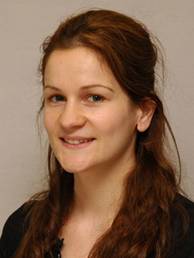Reflecting on Finance & Consultancy Careers for Researchers
By uczjipo, on 30 October 2019
Finance and Consultancy Month… let’s reflect:
As Finance and Consultancy month comes to a close, we are reflecting on what has been an insightful and engaging collection of events. Whilst taking the leap out of academia can seem like a daunting and unfamiliar prospect our alumni and professionals have given us plenty of reassuring and motivational messages throughout the month. The first key area of reflection for this month is therefore on transitioning.
Transitioning out of academia and into a corporate role…How do you deal with any attached stigma?
- It’s your career path! Everyone takes a different route to find their thing – don’t be afraid to acknowledge that academia may not be for you. Check out our previous blog post on this
- There is a world of research beyond academia. So many roles within finance and consultancy are research-focused – Check out our post by economist Keith Lai for ideas
- Your interests can be applied across the sector. Branching out and exploring other options can broaden your horizons, make you more employable and expand the practical reach of your research expertise. Consultancy is a great way to do this, offering your expertise to support businesses to grow.
Moving between academic and non-academic arenas, is it possible?
- Yes! Many people still contribute to academic papers alongside their roles, if publishing is your passion there are always ways to continue…
- Some organisations hire for roles with this in mind, creating and publishing research can be part of your job! Check out a previous blog on this
- Balancing the two may not be your thing. Many finance or consulting roles require strong research, writing and publishing skills – just utilised in a more corporate setting
The best and worst parts of a non-academic career, is it really for me?
- Stability, consistency and great benefits. The biggest response to this from both our finance and consultancy panels was the increased stability, lack of stress around funding, working more collaborative and less sporadic work schedules.
- It all depends on what you want… teamwork, deadlines, short projects and managing client needs are central to careers in finance and consultancy, so, if this isn’t for you, it may not be the right career path. Don’t Panic! There are plenty of industries where other skills are more suited. Key an eye on our blog for more case studies.
- Longer more intense working hours and less autonomy. Despite this, many of our contributors mentioned the increased satisfaction from shorter lead times and a better work-life balance.
So, what does this all mean fo you?
After hearing from professionals working across roles as consultants, economists, data scientists and traders the biggest piece of advice about their industry is to decide if it really is for you. Map out your skills, your interests, what drives you, how you like to work and see if that aligns with a career in the Finance or Consultancy worlds.
For example, in consultancy the key skills required are:
Teamwork, problem-solving, creativity, confidence under pressure and adaptability
Often consultants are working towards:
Fast-paced project delivery
managing a diverse portfolio of clients
and engaging a variety of industries
Roles are more structured and strong commitment is needed:
Core working hours mean more stability but overtime is frequently required to deliver projects
Consultants may work client-side within a given week, so travel is important
Managing projects within cross-organisational teams mean flexibility is key
These are the key aspects to explore before diving into applications. Is this for me? and what kind of working lifestyle do I want?
Finding an industry where your skills as research are valued and utilised may seem tricky but you can find roles across all sectors and industry. This is where our themed months come in to play, if you’ve decided finance or consultancy organisations are not for you, join us on another themed month and hear more about careers in UK & Global Health, Data Science & Data Analytics, Communications and Research, Government, Policy and Higher Education…. the list continues! Our speakers have come from backgrounds in physics, biology, maths, humanities and more ending up in completely different industry utilising those same core skills they learnt in research.
Come along to our events and find out how your skills are so transferable across the sectors and explore how you could branch out to support an organisation to develop!
Check out our full programme of researcher events on our website today!
 Close
Close





